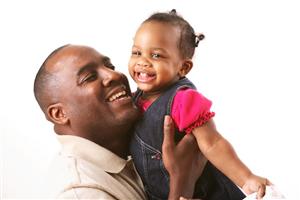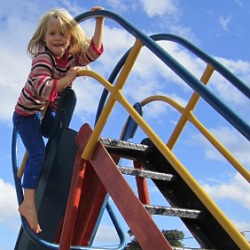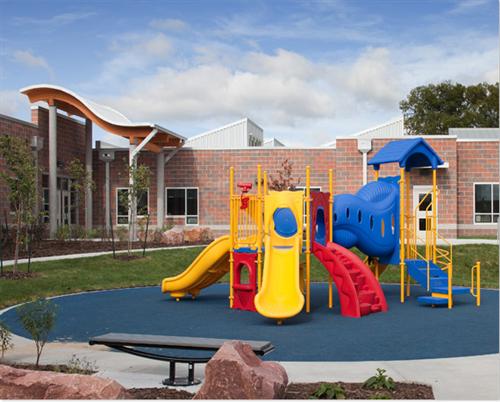- Buder Elementary School
- Kindergarten Readiness
Finley, Marla - KG
Page Navigation
-
 Kindergarten Readiness – What can you do to get your child ready for kindergarten?
Kindergarten Readiness – What can you do to get your child ready for kindergarten?Social & Emotional

- Encourage activities that develop strong, positive relationships with multiple caregivers, family, and friends (Feeney, 2009).
- Play games where the child must practice taking turns (Jenae, 2012).
- Set up regular play dates to allow for interaction with other children, especially if your child does not attend an ECE program.
- Tell your child that you expect them to clean up when they are finished playing. If necessary, you could use a ransom box like the one at www.madsmemories.blogspot.com/2009/08/moms-ransom-rubbage.html
- Have your child stay with other trustworthy adults, particularly if they do not attend an ECE program. (Jenae, 2012).
- Teach your child how to express his or her feelings appropriately when he or she does not like something (Geiser, 2013).
Cognitive
- Have your child help you sort everyday items such as laundry or canned goods.
- Teach your child to make various patterns (Jenae, 2012). Creating patterned jewelry or crafts can be motivating!
- Practice counting out loud (rote counting).
- Practice counting objects, and have your child touch each object as he or she counts. Anything will work – candy, stuffed animals, toys, crayons, etc.
Language

- Read to your child every day, and ask them afterward what happened first, next, and last.
- Respond to the child’s sounds, babbles, words, and sentences enthusiastically (Feeney, 2009).
- Talk to children using a rich vocabulary (Feeney, 2009). According to Zero to Three (2012), “children’s academic successes at ages 9 and 10 can be attributed to the amount of words and talk they hear from birth through age 3.
- Give your child one step directions and be sure they follow through. Move on to two and three step directions when they are able to remember and follow through. For example, ask your child to clap their hands, pick up a pencil from the floor, and put the pencil on the table in the kitchen.
- Let your child play! Babies and toddlers explore and make sense of the world around them through play, which develops their language and communication (Zero to Three, 2012).
Gross & Fine Motor

- Give your child lots of time to play outside running, jumping, and climbing!
- Play catch together regularly (Jenae, 2012).
- Give your child old magainzes or newspapers to cut out items he or she loves. They can glue these pictures on a piece of paper to create a collage (Geiser, 2013).
- Stack blocks together (Jenae, 2012).
- Snipping at paper, cutting curvy or straight lines on paper, or practicing cutting smaller objects will help build hand muscles.
- Finger paint with your child
- Use macaroni and yarn to string together necklaces.
- Work on puzzles together.
- Use beads (the size depends on your child's skill level) to create bracelets and necklaces together.
- Give your child play-do to roll, squish, stamp, and cut (Jenae, 2012).
- Write your child’s name on large paper. Have him or her place stickers over the letters in their name.
- Write your child’s name in highlighter and have him or her trace it, being sure that they start their letter at the top (Jenae, 2012).
- Have your child write letters in shaving cream, in salt or sugar in a cake pan, or in finger paint (Geiser, 2013).
Early Learning Experiences – What to Look for in an Early Childhood Center

- Teachers are trained in early childhood education (Feeney, 2009).
- Children should have strong, positive relationships with teachers (Feeney, 2009).
- Teachers support children’s cognitive development by providing motivating materials for children to explore (Feeney, 2009).
- A positive approach to discipline is used rather than harsh, coercive discipline (Feeney, 2009).
References
Feeney, S., Galper, A., & Seefeldt, C (2009). Continuing Issues in Early Childhood Education (3rd ed.). Upper Sadle River, NJ: Pearson Education Inc.
Geiser, T. (2013, July 30). 10 kindergarten readiness skills your child needs. Retrieved from: www.education.com/magazine/article/kindergarten-readiness-secrets/
Jenae. (2012, June 18). 33 ways to prepare your child for kindergarten. Retrieved from: www.icanteachmychild.com/33-ways-to-prepare-your-child-for-kindergarten/
Zero to Three: National Center for Infants, Toddlers, and Families (2012). The school-ready child. Retrieved from: www.zerotothree.org/public-policy/school-readiness-infographic.html

